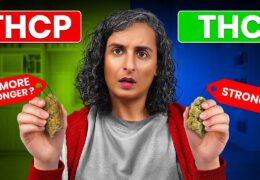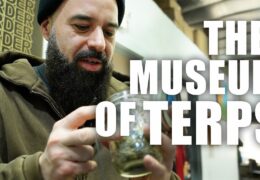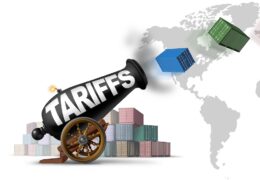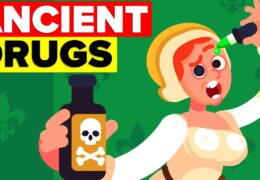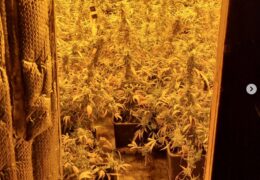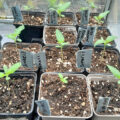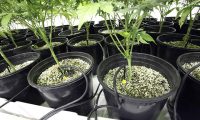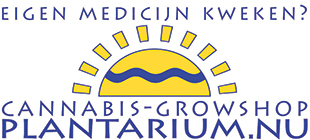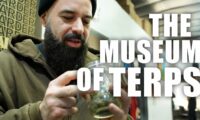- Buitenwiet test ’25 update #3: wat piept daar boven de grond uit?
- De allerbeste wiet kweek je gewoon… buiten!
- CannaTommy komt uit de kast voor een lesje wietboter maken
- Studie • Hoe roken, vapen en blowen de luchtwegen beïnvloeden
- Dokter Groen zet de aardbeienbloemetjes buiten
- ‘Cannabis is de grote verbinder, vredesstichter, en kalmeerder’
Canada kondigt legale wiet ook bij VN aan

Toevallig (of niet) op 4/20 kondigt de Canadese minister van Volksgezondheid Jane Philpott tijdens de drugsconferentie van de Verenigde Naties in New York aan dat Canada volgend voorjaar de legalisering van cannabis implementeert. De bekendmaking van het tijdstip ging gepaard met een legendarische speech, zeker binnen VN-muren.
UNGASS
Het was misschien wel de opvallendste verkiezingsbelofte van de liberale partij vorig jaar: als zij aan de macht zouden komen zou cannabis volledig legaal worden, dus ook de recreatieve consumptie ervan! En verdomd, ze wonnen de verkiezingen. En in tegenstelling tot bijvoorbeeld Nederland, waar een belofte van een politicus evenveel waard is als een knuffel van Willem Holleeder, maken ze er in Canada echt werk van. Voorlopig hoogtepunt is de speech van minister Jane Philpott woensdag (4/20 ook nog!) op UNGASS, de speciale VN-conferentie over het drugsbeleid.
Legendarische VN-toespraak Canada
De Canadese minister van Volksgezondheid stelde enerzijds de aanwezige landen gerust door te stellen dat Canada zich blijft inzetten dat wiet uit handen van kinderen blijft en dat ze drugsmisbruik en drugsgerelateerde misdaad blijven bestrijden. Maar compleet nieuw en afwijkend voor de Verenigde Naties – van oudsher enorme liefhebbers van de war on drugs tenslotte – was het gedeelte van haar toespraak waarin ze trots en standvastig de legalisering van cannabis aankondigde!
Omdat het linksom of rechtsom toch een historische en legendarische speech is, knallen we ‘m er maar helemaal in, in het Engels zodat we ook niet van ‘verkeerd vertalen’ beschuldigd kunnen worden door figuren als pak ‘m beet Ard van der Steur en Bart de Wever…
Toespraak op het VN-congres van minister Jane Philpott – Volksgezondheid, Canada – op woensdag 20 april 2016

Canada behoort voortaan tot onze favoriete landen op aarde! [beeld: karen roach/Shutterstock]
Mr. Chair, Heads of State and Government, Ministers and distinguished delegates. I am honoured to participate in this Special Session of the UN General Assembly.
This gathering is an opportunity to revisit our efforts in global drug policy.
A few weeks ago, in preparation for this event, I met with a group of NGOs in Ottawa. There were lawyers, doctors and highly articulate activists. But the most powerful voice of all belonged to a mother.
She was there to tell the story of her young daughter, who lost her life due to complications of substance use. She described watching her daughter slip away, as she struggled to access the treatment and services that may have saved a beautiful, fragile life.
Stories like this are far too commonplace. Countless lives are cut short due to overdoses of licit and illicit drugs.
Today, I stand before you as Canada’s Minister of Health, to acknowledge that we must do better for our citizens.
I am proud to stand up for drug policy that is informed by solid scientific evidence and uses a lens of public health to maximize education and minimize harm.
As a doctor who has worked in both Canada and sub-Saharan Africa, I’ve seen too many people suffer the devastating consequences of drugs, drug-related crime, and ill-conceived drug policy.
Fortunately, solutions are within our grasp.
In my own country, I am impressed with the work of Insite, a supervised consumption site where people with addiction access the care and support they need.
I am proud at how quickly we are making naloxone antidote kits more available, to save lives from opioid overdoses.
I sense an urgency to work together to find solutions, from big cities to remote indigenous communities.
I know this goodwill and generosity also exists internationally.
Indeed, I was heartened by the INCB President’s recent reminder to us that we must put health and welfare at the centre of a balanced approach to treaty implementation.
Our approach to drugs must be comprehensive, collaborative and compassionate. It must respect human rights while promoting shared responsibility. And it must have a firm scientific foundation.
In Canada, we will apply these principles with regard to marijuana.
To that end, we will introduce legislation in Spring 2017 that ensures we keep marijuana out of the hands of children and profits out of the hands of criminals.
While this plan challenges the status quo in many countries, we are convinced it is the best way to protect our youth while enhancing public safety.
Canada will continue to modernize our approach to drug policy. Building on our successes, such as Insite, our work will embrace upstream prevention, compassionate treatment, and harm reduction.
We will work with law enforcement partners to encourage appropriate and proportionate criminal justice measures. We know it is impossible to arrest our way out of this problem.
Addressing problematic drug use is a shared challenge. The solutions are also collective – involving governments, indigenous peoples, civil society, youth, scientists and key UN agencies.
I acknowledge that other countries and cultures will pursue approaches that differ from Canada’s.
I believe that—if we respect one another’s perspectives and seek common ground—we can achieve our shared objective: protecting our citizens.
Better yet, we can improve their lives.
Thank you
Nee, dank jou Canada, dank jou heel veel! 🙂
[openingsfoto: arindambanerjee / Shutterstock.com]
(advertentie)














